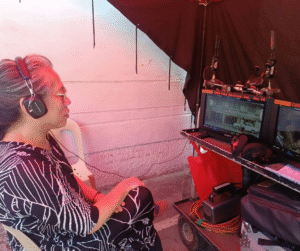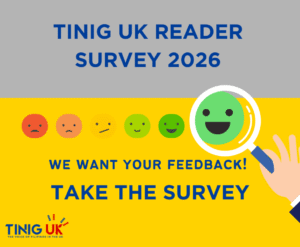By Mari-An C. Santos
Our digitally-dependent lives wreak havoc on the environment.
According to data from Statista, 347 billion emails are sent every day. Since it requires electricity to power not only devices but also data centers that contain these vast amounts of information, internet use is estimated to account for 3.7% of the world’s global CO2 emissions, according to a study from 2019.
A Yale university study found that if 70 million viewers switched their video streaming quality from high definition to standard, they would reduce monthly greenhouse gas emissions by 3.5 million tons. Further, by switching off video during 15 hours of online meetings, you could save the same amount of emissions created by charging a smartphone every night for 1,151 days.
With some digital decluttering, you can lower your carbon footprint. There are many easy – though initially time-consuming – ways to declog your personal internet ecosystem.
In addition, by organising and deleting files, emails, apps, photos, and videos, you can potentially optimise the performance of your devices and minimise background spying.
Review your emails
Do you really need to receive notifications from different online shops or from all of your social media channels? Clear your mailbox of marketing materials and newsletters from last year (and older). Delete and unsubscribe from these so that you can free up your email, making it easier to search for relevant and important communication.
You can search from long email threads and keep the last email that retains all the information, then delete the rest. Also, you can consider deleting “empty” emails! If you’ve been sent a copy of old emails, and just acknowledged with an “OK” or “Thanks” to an email, those can likely be deleted too, depending on the content of the email.

Look through your Sent folder and delete emails that haven’t received any responses after an extended period of time. Also, visit your Drafts folder for any messages you never finished, and consider emptying your Spam folder.
Check your privacy and security settings. Turn off permissions for ads, data collection, and activity tracking by your email service. Also, remove the access permissions from any third-party apps you don’t trust.
Make it a habit to keep attachment file sizes at a minimum and, whenever possible, send compressed files.
Audit the apps
Did you download a free app when you first got your phone and used it once — or maybe even never? Delete apps that you don’t use on a regular basis.
How about streamlining? Ask yourself: do you really need three kinds of project management apps? Or three different browsers? Chances are, the answer is “no.” In that case, decide which ones make the cut.
Turn off notifications from apps, and remove access permissions of any third-party apps.
Keep your memories safe
Organise your most important documents and save them to the cloud. All others, save in external hard drives.
Photos and videos can take up a lot of storage space on your laptop and mobile device. How many of them do you actually look at more than once after you’ve taken them?
You can review and then delete identical images and videos. Even better, save them to an external storage device should you need them later. Just keep your absolute favorites saved in your gadgets, but have offline backups where applicable.
Secure your data

Did you know that you can save the data stored in social media accounts?
If you need to, you can request a backup of your data from places like Facebook or Twitter, and then store them in a secure location. Critical messages can also be backed up in this case.
Scan your folders
Just by categorising the contents of your folders according to size, you will be able to identify which ones take up huge amounts of space.
Find duplicate files and leave only one copy. Delete unnecessary files and programs.
If it will not be critical to your filing system, compress pdf files to further save space.
Some browsing choices
You can clear the cache, cookies, and history on your browser to make your browsing experience faster in certain respects.
Meanwhile, not all browser extensions are created equal. Some of them can slow down your browsing experience and, in some cases, make you vulnerable to spying. If you are unsure what an extension does or even where it came from, uninstall it.
If you are so inclined, you can also look into search engines that do more for the environment, like Ecosia and Ekoru, that donate revenue to climate change action.
Sift through social media
Safeguard your privacy by setting your posts to be visible only to your network. Then, review your list of contacts/friends/followers to make sure you are sharing with people whom you know and trust.
Double-check whether your account has granted access to other apps. Limit which ones can access your information and are allowed to send you notifications.
Turn off permissions for notifications, ads, data collection, and activity tracking.
Performing a digital cleanup of this sort may not be easy or quick, but taking the time to do so will help you manage your devices, files, and security. As an added bonus, it can do a little bit of good for the planet!
Mari-An Santos is a fellow of the Aries Rufo Journalism Fellowship.
The publication of this article is supported by Rappler Inc. and the Journalism for Nation Building Foundation.













